
AI Crypto Trading with Token Metrics Crypto API and OpenAI Agents SDK: The Future of Autonomous Crypto Intelligence
%201.svg)
%201.svg)


Why This Integration Matters
Developer demand for high-fidelity market data has never been higher, and so has the need for agentic AI that can act on that data. Token Metrics delivers one of the best crypto API experiences on the market, streaming tick-level prices, on-chain metrics, and proprietary AI grades across 6,000+ assets. Meanwhile, OpenAI’s new Agents SDK gives engineers a lightweight way to orchestrate autonomous AI workflows—without the overhead of a full UI—by chaining model calls, tools, and memory under a single, developer-friendly abstraction. Together they form a plug-and-play stack for building real-time trading bots, research copilots, and portfolio dashboards that think and act for themselves.
A Quick Primer on the Token Metrics Crypto API & SDK
- Comprehensive Coverage: Tick-level pricing, liquidity snapshots, and on-chain activity for thousands of tokens.
- Actionable AI: Trader and Investor Grades fuse technical, on-chain, social, and venture-funding signals into a single score that beats raw price feeds for alpha generation.
- Ready-Made Signals: Long/short entries and back-tested model outputs arrive via one endpoint—perfect for time-critical agents.
- Instant Integration: Official Python and TypeScript SDKs handle auth, retries, and pandas helpers so you can prototype in minutes.
Because the service unifies raw market data with higher-level AI insight, many builders call it the token metrics crypto API of choice for agentic applications.
What Sets the OpenAI Agents SDK Apart
Unlike prior frameworks that mixed business logic with UI layers, the Agents SDK is headless by design. You write plain TypeScript (or JavaScript) that:
- Defines tools (functions, web-search, file search, or external APIs).
- Describes an agent goal and supplies the tools it can call.
- Streams back structured steps & final answers so you can trace, test, and fine-tune.
Under the hood, the SDK coordinates multiple model calls, routes arguments to tools, and maintains short-term memory—freeing you to focus on domain logic.
Bridging the Two with the Crypto MCP Server
Token Metrics recently shipped its Crypto MCP Server, a lightweight gateway that normalises every client—OpenAI, Claude, Cursor, VS Code, Windsurf, and more—around a single schema and API key. One paste of your key and the OpenAI Agents SDK can query real-time grades, prices, and signals through the same endpoint used in your IDE or CLI.
Why MCP?
Consistency—every tool sees the same value for “Trader Grade.”
One-time auth—store one key, let the server handle headers.
Faster prototyping—copy code between Cursor and Windsurf without rewriting requests.
Lower cost—shared quota plus TMAI staking discounts.
In fewer than 30 lines you’ve built a self-orchestrating research assistant that pulls live data from the best crypto API and reasons with GPT-4o.
Architecture Under the Hood
- Agent Layer – OpenAI Agents SDK manages state, reasoning, and tool routing.
- Tool Layer – Each Token Metrics endpoint (prices, grades, signals) is wrapped as an Agents SDK tool.
- Data Layer – The MCP Server proxies calls to the Token Metrics REST API, unifying auth and schemas.
- Execution Layer – Agents call the tools; tools call MCP; MCP returns JSON; the agent responds.
Because every piece is modular, you can swap GPT-4o for GPT-4.1, add a DEX trading function, or stream outputs to a React dashboard—no core rewrites required.
Performance & Pricing Highlights
- Free Tier: 5 000 calls/month—ideal for proof-of-concept agents.
- Premium Tier: 100 000 calls/month and three-year history, unlocking AI Agent endpoints for production workloads.
- VIP: 500 000 calls/month and unlimited history for institutional desks.
OpenAI usage is metered per token, but the Agents SDK optimises context windows and tool invocations, often yielding lower compute cost than bespoke chains.
Roadmap & Next Steps
Token Metrics is rolling out first-party TypeScript helpers that auto-generate tool schemas from the OpenAPI spec, making tool wrapping a one-liner. On the OpenAI side, Responses API is slated to replace the Assistants API by mid-2026, and the Agents SDK will track that upgrade.
Ready to build your own autonomous finance stack?
- Grab a free Token Metrics key → app.tokenmetrics.com
- Clone the Agents SDK starter repo → npx degit openai/agents-sdk-starter
- Ship something your traders will love.
- Watch demo here
The synergy between the Token Metrics crypto API and OpenAI’s Agents SDK isn’t just another integration; it’s the missing link between raw blockchain data and actionable, self-operating intelligence. Tap in today and start letting your agents do the heavy lifting.
AI Agents in Minutes, Not Months


.svg)



Create Your Free Token Metrics Account





.png)
Recent Posts
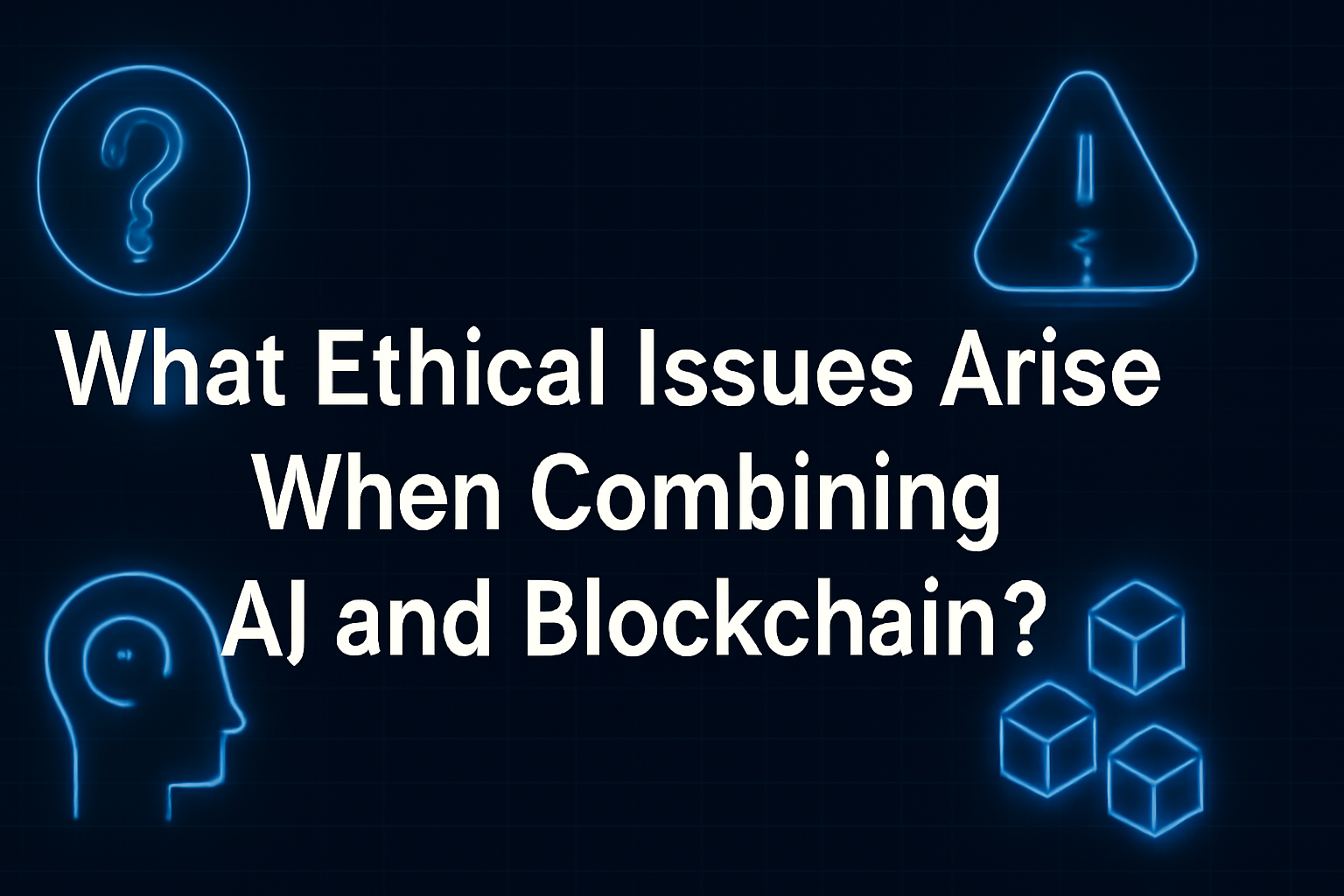
What Ethical Issues Arise When Combining AI and Blockchain?
%201.svg)
%201.svg)
The convergence of artificial intelligence and blockchain technology represents one of the most transformative developments in the digital age. While AI brings unprecedented computational power and decision-making capabilities, blockchain offers decentralization, transparency, and immutability. Together, these technologies promise to revolutionize industries from finance and healthcare to supply chain management and governance. However, this powerful combination also raises significant ethical concerns that society must address as adoption accelerates. Understanding these ethical challenges is crucial for developers, policymakers, and users navigating this emerging landscape.
The Promise and Peril of AI-Blockchain Integration
AI and blockchain complement each other in compelling ways. Blockchain can provide transparent, auditable records of AI decision-making processes, addressing the "black box" problem where AI systems make decisions without clear explanations. Meanwhile, AI can optimize blockchain networks, improve consensus mechanisms, and analyze on-chain data to detect fraud or market manipulation.
In cryptocurrency markets, this integration has become particularly prominent. Platforms like Token Metrics leverage AI algorithms to analyze blockchain data, providing traders with sophisticated market predictions, portfolio recommendations, and risk assessments. As a leading crypto trading and analytics platform, Token Metrics demonstrates how AI can process vast amounts of on-chain data to generate actionable insights for investors. However, even beneficial applications raise ethical questions about fairness, accountability, and the concentration of power.
Algorithmic Bias and Discrimination
One of the most pressing ethical concerns involves algorithmic bias embedded in AI systems operating on blockchain networks. AI models learn from historical data, which often contains societal biases related to race, gender, socioeconomic status, and geography. When these biased AI systems make decisions recorded immutably on blockchains, discrimination becomes permanently encoded in decentralized systems.
In decentralized finance (DeFi), AI-powered lending protocols might discriminate against certain demographics based on biased training data, denying loans or charging higher interest rates to specific groups. Once these decisions are recorded on blockchain, they become part of an unchangeable historical record. Unlike traditional systems where discriminatory practices can be corrected retroactively, blockchain's immutability makes addressing past injustices significantly more challenging.
The cryptocurrency trading space faces similar concerns. AI trading algorithms analyzing blockchain data might inadvertently disadvantage retail investors by identifying and exploiting patterns faster than humans can react. While platforms like Token Metrics aim to democratize access to AI-powered trading insights, the question remains whether such tools truly level the playing field or simply create new forms of information asymmetry.
Transparency vs. Privacy Trade-offs
Blockchain's fundamental transparency creates ethical dilemmas when combined with AI systems processing sensitive information. Public blockchains record all transactions permanently and visibly, while AI can analyze these records to extract patterns and identify individuals despite pseudonymous addresses.
Advanced machine learning algorithms can correlate on-chain activity with real-world identities by analyzing transaction patterns, timing, amounts, and associated addresses. This capability threatens the privacy that many blockchain users expect. Individuals engaging in perfectly legal activities might face surveillance, profiling, or discrimination based on AI analysis of their blockchain transactions.
Privacy-focused blockchains attempt to address this concern through cryptographic techniques like zero-knowledge proofs, but integrating AI with these systems remains technically challenging. The ethical question becomes: how do we balance the benefits of AI-driven blockchain analysis—such as fraud detection and regulatory compliance—with individuals' rights to privacy and financial autonomy?
Accountability and the Question of Control
When AI systems operate autonomously on decentralized blockchain networks, determining accountability for harmful outcomes becomes extraordinarily complex. Traditional legal frameworks assume identifiable parties bear responsibility for decisions and actions. However, AI-blockchain systems challenge this assumption through distributed control and autonomous operation.
Smart contracts executing AI-driven decisions raise fundamental questions: Who is responsible when an autonomous AI system makes a harmful decision recorded on blockchain? Is it the developers who created the algorithm, the validators who approved the transaction, the users who deployed the contract, or the decentralized network itself? The absence of clear accountability mechanisms creates ethical and legal grey areas.
In cryptocurrency markets, this manifests through algorithmic trading systems that can manipulate markets or cause flash crashes. When AI trading bots operating on blockchain-based exchanges create extreme volatility, identifying responsible parties and providing recourse for affected investors becomes nearly impossible. Even sophisticated platforms like Token Metrics, which provide AI-powered analytics to help traders navigate volatile markets, cannot fully eliminate the risks posed by autonomous algorithmic trading systems operating beyond any single entity's control.
Environmental and Resource Concerns
The environmental ethics of combining energy-intensive technologies cannot be ignored. Both AI training and blockchain networks, particularly those using proof-of-work consensus mechanisms, consume enormous amounts of electricity. Training large AI models can generate carbon emissions equivalent to the lifetime emissions of multiple cars, while Bitcoin's network alone consumes energy comparable to entire countries.
Combining these technologies multiplies environmental impact. AI systems continuously analyzing blockchain data, executing trades, or optimizing network operations require constant computational resources. As AI-blockchain applications scale, their cumulative environmental footprint raises serious ethical questions about sustainability and climate responsibility.
The cryptocurrency industry has begun addressing these concerns through proof-of-stake mechanisms and carbon offset programs, but the integration of AI adds another layer of energy consumption that requires ethical consideration. Companies developing AI-blockchain solutions bear responsibility for minimizing environmental impact and considering the broader consequences of their technological choices.
Market Manipulation and Fairness
AI systems analyzing blockchain data possess capabilities that raise fairness concerns in financial markets. Sophisticated algorithms can detect patterns, predict price movements, and execute trades at speeds impossible for human traders. When these AI systems operate on transparent blockchains, they can front-run transactions, manipulate order books, or exploit retail investors.
The ethical question centers on whether such technological advantages constitute fair market participation or exploitation. While AI-powered platforms like Token Metrics democratize access to advanced analytics, helping retail traders compete more effectively, the fundamental asymmetry remains between those with cutting-edge AI capabilities and those without.
Maximum extractable value (MEV) exemplifies this ethical challenge. AI systems can analyze pending blockchain transactions and strategically order their own transactions to extract value, essentially taking profits that would otherwise go to regular users. This practice, while technically permitted by blockchain protocols, raises questions about fairness, market integrity, and whether decentralized systems truly serve their egalitarian ideals.
Autonomous Decision-Making and Human Agency
As AI systems become more sophisticated in managing blockchain-based applications, concerns about human agency intensify. Decentralized Autonomous Organizations (DAOs) governed by AI algorithms might make decisions affecting thousands of people without meaningful human oversight. The ethical implications of ceding decision-making authority to autonomous systems deserve careful consideration.
In finance, AI-managed investment funds operating on blockchain rails make portfolio decisions affecting people's financial futures. While these systems may optimize for returns, they might not consider the broader ethical implications of investments, such as environmental impact, labor practices, or social consequences. The question becomes whether we should allow autonomous systems to make consequential decisions, even if they perform better than humans by certain metrics.
Data Ownership and Exploitation
AI systems require vast amounts of data for training and operation. When this data comes from blockchain networks, ethical questions about ownership, consent, and compensation arise. Users generating on-chain data through their transactions and interactions may not realize this information trains AI models that generate profits for technology companies.
The ethical principle of data sovereignty suggests individuals should control their own data and benefit from its use. However, public blockchains make data freely available, and AI companies can harvest this information without permission or compensation. This dynamic creates power imbalances where sophisticated entities extract value from the collective activity of blockchain users who receive nothing in return.
Platforms operating in this space, including analytics providers like Token Metrics, must grapple with these ethical considerations. While analyzing public blockchain data is technically permissible, questions remain about fair value distribution and whether users contributing data should share in the profits generated from its analysis.
Moving Forward: Ethical Frameworks for AI-Blockchain Integration
Addressing these ethical challenges requires proactive measures from multiple stakeholders. Developers should implement ethical design principles, including bias testing, privacy protections, and accountability mechanisms. Policymakers need to create regulatory frameworks that protect individuals while fostering innovation. Users must educate themselves about the implications of AI-blockchain systems and advocate for ethical practices.
Industry leaders like Token Metrics and other crypto analytics platforms have opportunities to set ethical standards, demonstrating how AI-blockchain integration can serve users fairly while maintaining transparency about capabilities and limitations. The path forward requires balancing innovation with responsibility, ensuring these powerful technologies enhance rather than undermine human welfare, autonomy, and dignity.
The ethical issues arising from AI-blockchain convergence are complex and evolving, but addressing them thoughtfully will determine whether these technologies fulfill their transformative potential or create new forms of inequality and harm in our increasingly digital world.
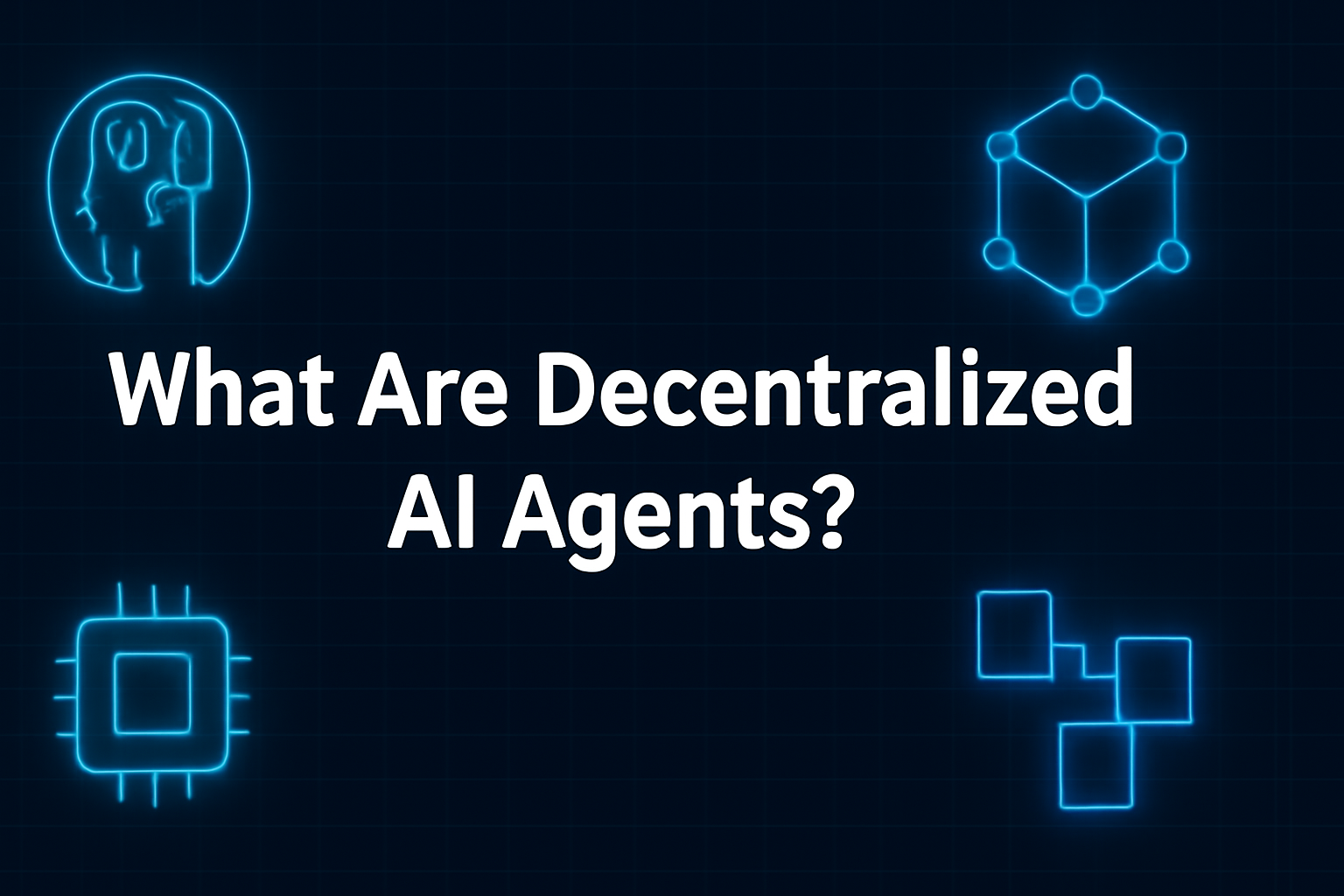
What Are Decentralized AI Agents? The Future of Autonomous Crypto Trading in 2025
%201.svg)
%201.svg)
The cryptocurrency landscape is experiencing a transformative shift in 2025, with decentralized AI agents emerging as the hottest new narrative in the blockchain space. These autonomous entities represent a significant technological leap beyond traditional trading bots and large language models, combining the power of artificial intelligence with blockchain's decentralized infrastructure to create intelligent systems that can operate independently, make decisions, and execute complex multi-step operations without human intervention. This comprehensive guide explores what decentralized AI agents are, how they're revolutionizing crypto trading and analytics, and why platforms like Token Metrics are at the forefront of this AI-powered revolution.
Understanding Decentralized AI Agents
Decentralized AI agents are autonomous software programs designed to perceive their environment, make decisions, and take actions to achieve specific goals within decentralized networks. Unlike their predecessors—simple bots that operated within confined environments and were limited to reactive tasks—AI agents can interact with the external world, handle multi-step operations, adapt to changing conditions, and learn from experience.
Think of AI agents as digital co-pilots that never sleep, never get emotional, and never miss market opportunities. They operate on blockchain networks, executing transactions, analyzing market data, managing portfolios, and interacting with DeFi protocols entirely autonomously. These agents don't suffer from FOMO (fear of missing out), panic selling, or fatigue—they operate continuously based on predefined strategies and real-time data analysis.
The market for AI agents has exploded rapidly. By mid-2025, the AI agents sector reached a market capitalization of approximately $5.38 billion, with platforms launching over 1,000 new agent tokens daily. The global AI trading platform market is expected to reach $69.95 billion by 2034, growing at over 20% annually, underscoring the massive transformation underway in financial markets.
How Decentralized AI Agents Work
AI agents in crypto operate through a sophisticated architecture that combines machine learning, blockchain integration, and autonomous decision-making capabilities. At their core, these agents consist of several key components that enable their autonomous functionality.
Perception and Data Collection
AI agents continuously monitor their environment by collecting data from multiple sources including cryptocurrency exchanges, blockchain networks, social media platforms, news outlets, on-chain analytics, and market sentiment indicators. This comprehensive data collection provides agents with the contextual awareness needed to make informed decisions.
For example, sentiment analysis agents like AIXBT monitor social media, news, and community forums to gauge market sentiment, providing traders with real-time insights into crowd psychology. By April 2025, AIXBT had accumulated over 450,000 followers on X (formerly Twitter), demonstrating the widespread adoption of AI-driven market analysis.
Decision-Making and Strategy Execution
Once data is collected, AI agents process this information using machine learning algorithms, technical indicators, predictive models, and pre-programmed strategies to determine appropriate actions. They can identify trading opportunities, assess risk levels, optimize portfolio allocations, and execute transactions—all without human intervention.
Unlike traditional bots that follow simple if-then rules, AI agents can adapt their strategies based on market conditions, learn from past performance, and handle complex scenarios requiring multi-step reasoning. This adaptability makes them particularly valuable in cryptocurrency's volatile, 24/7 market environment.
Blockchain Integration and Execution
Decentralized AI agents execute actions directly on blockchain networks by interacting with smart contracts, submitting transactions to decentralized exchanges, managing wallet operations, participating in DeFi protocols, and coordinating with other agents. This on-chain execution ensures transparency, immutability, and trustless operation—core principles of decentralized finance.
Types of Decentralized AI Agents in Crypto
The decentralized AI agent ecosystem encompasses various specialized agents, each designed for specific use cases within the crypto space.
Trading and Investment Agents
Trading agents represent the most common application of AI in crypto, automating the entire trading lifecycle from opportunity identification to execution and risk management. These agents can implement sophisticated strategies including arbitrage across multiple exchanges, grid trading in sideways markets, dollar-cost averaging with dynamic adjustments, momentum trading based on technical indicators, and market-making to provide liquidity.
Platforms like ai16z, a decentralized autonomous organization (DAO) built on Solana, use AI to identify investment opportunities and execute trades. The platform reached over $2 billion in value by December 2024, demonstrating the market's confidence in AI-driven investment strategies.
Market Analysis and Research Agents
Research-focused AI agents provide investors with comprehensive market intelligence by analyzing fundamental data, tracking on-chain metrics, monitoring whale wallet movements, evaluating project tokenomics, and generating investment recommendations. These agents act as tireless research assistants, processing vast amounts of data to surface actionable insights.
This is where platforms like Token Metrics excel as industry leaders. Token Metrics leverages advanced AI and machine learning to provide comprehensive crypto analytics, delivering Trader Grades for short-term opportunities and Investor Grades for long-term potential across over 5,000 tokens. The platform's AI assigns scores from 0-100 based on real-time market data, social sentiment, on-chain metrics, and technical indicators—giving traders and investors a powerful edge in identifying winning opportunities before they hit mainstream awareness.
DeFi Protocol Agents
Decentralized finance agents interact with lending protocols, yield farming platforms, liquidity pools, and decentralized exchanges to optimize yields and manage risk. They can automatically move assets between protocols to maximize returns, rebalance portfolios based on market conditions, and execute complex DeFi strategies that would be impractical to manage manually.
Governance and Community Agents
Some AI agents participate in decentralized governance, voting on proposals, monitoring community sentiment, coordinating collective actions, and representing stakeholder interests. These agents help democratize governance by ensuring continuous participation and data-driven decision-making.
Leading Decentralized AI Agent Projects
Several pioneering projects are defining the decentralized AI agent landscape in 2025, each bringing unique capabilities and innovations to the ecosystem.
Artificial Superintelligence Alliance (ASI)
The ASI Alliance represents a groundbreaking collaboration between Fetch.ai (FET), SingularityNET (AGIX), and Ocean Protocol (OCEAN). Formed in July 2024 on the Binance exchange, this alliance aims to accelerate the development of decentralized Artificial General Intelligence (AGI) and ultimately Artificial Superintelligence (ASI). By uniting these projects under a unified token ($ASI), the alliance creates a decentralized AI ecosystem with powerful machine-learning capabilities across industries.
Fetch.ai enables the creation of autonomous economic agents for decentralized tasks, powering applications from supply chain optimization to automated trading. The platform launched a $10 million accelerator in early 2025 to invest in startups focused on AI agents, demonstrating its commitment to ecosystem growth.
Virtuals Protocol
Launched on the Base blockchain in March 2024, Virtuals Protocol specializes in AI-driven metaverse integration and tokenized AI agents. The platform allows developers to create, own, and monetize autonomous AI agents for gaming, social interactions, virtual real estate management, and entertainment applications.
As of September 2025, VIRTUAL token maintains a market capitalization around $1.6-1.8 billion, with over 21,000 agent tokens launched by November 2024. The protocol's strong community engagement and developer-friendly infrastructure make it a leading platform for AI agent creation.
ai16z and Eliza Framework
Operating on Solana, ai16z utilizes the Eliza framework—a powerful multi-agent simulation platform that enables AI agents to interact across multiple platforms while maintaining consistent personalities and knowledge. The ai16z token serves dual purposes as both a governance and utility token, allowing holders to participate in decision-making while facilitating transactions within the ecosystem.
The platform offers a 31.39% APR through ai16zPOOL, incentivizing liquidity provision and community participation. This combination of AI trading intelligence with DeFi yields creates compelling value for participants.
Bittensor (TAO)
Bittensor represents one of the most innovative projects at the intersection of blockchain and AI. It's a decentralized machine learning network that allows AI models to collaborate, compete, and get rewarded based on performance. Instead of training models in closed silos, Bittensor enables developers to contribute models to an open network where they're ranked and compensated in TAO tokens.
With consistent top rankings by market cap among AI crypto projects, Bittensor demonstrates the viability of decentralized AI infrastructure that incentivizes quality through tokenomics.
Token Metrics: Your AI-Powered Crypto Intelligence Platform
While decentralized AI agents are transforming the crypto landscape, accessing their insights and making informed decisions requires sophisticated analytics infrastructure. This is where Token Metrics distinguishes itself as the premier AI-powered crypto trading and analytics platform in 2025.
Comprehensive AI-Driven Analytics
Token Metrics provides cutting-edge market intelligence through proprietary AI models that analyze thousands of tokens in real-time. The platform delivers actionable insights including AI-powered ratings (0-100 Trader and Investor Grades), buy and sell signals based on machine learning algorithms, risk assessment and smart contract audits, whale wallet tracking and institutional flow analysis, and social sentiment monitoring across multiple platforms.
In March 2025, Token Metrics launched integrated on-chain trading, transforming from an analytics platform into an end-to-end solution. Users can now research tokens, review AI ratings, and execute trades directly on the platform—typically completing transactions in under two minutes through seamless multi-chain swaps powered by LiFi technology.
AI Indices for Automated Portfolio Management
For investors seeking passive exposure with active management, Token Metrics offers AI-managed indices that dynamically rebalance based on market conditions. These indices provide diversified exposure to blue-chip assets or high-potential "moonshot" tokens identified through predictive analytics, removing emotional decision-making from portfolio management.
Token Metrics AI Chatbot
The platform's AI chatbot serves as a personal crypto assistant, answering questions about specific tokens, providing trade ideas and execution recommendations, tracking market movements and alerts, and delivering research insights in natural language. This conversational interface makes sophisticated AI analysis accessible to traders at all experience levels.
Developer-Friendly API and Infrastructure
Token Metrics provides comprehensive API access for developers building crypto applications, trading bots, and AI agents. The Token Metrics API delivers real-time ratings data, sentiment analysis, historical performance metrics, and automated signals—enabling developers to build sophisticated trading systems on top of Token Metrics' AI infrastructure.
The platform's recently launched MCP (Multi-Client Protocol) Server standardizes crypto data access across development tools like OpenAI agents, Claude Desktop, Cursor IDE, and more, solving API fragmentation issues that plague crypto development.
Track Record of Success
Token Metrics has demonstrated its predictive power by identifying major winners early, including MATIC (Polygon) and SOL (Solana) before their explosive growth. This track record of spotting winning tokens before mainstream awareness validates the platform's AI-driven approach to crypto analysis.
The Future of Decentralized AI Agents
As we look toward the remainder of 2025 and beyond, several trends will drive the evolution of decentralized AI agents in cryptocurrency markets.
Agent-to-Agent Interactions
The future will see increased collaboration between AI agents, with agents communicating, negotiating, and coordinating actions autonomously. This agent-to-agent economy could revolutionize how decentralized systems operate, creating emergent behaviors and efficiencies impossible with human-only coordination.
AI-Dominated On-Chain Activity
Analysts predict AI agents will increasingly dominate financial activity on blockchain networks, executing the majority of trades, managing substantial portions of DeFi liquidity, and optimizing yields across protocols. This shift will fundamentally change market dynamics and liquidity provision.
Enhanced Personalization
Future AI agents will offer unprecedented personalization, learning individual user preferences, adapting strategies to personal risk tolerance, and providing customized market analysis and recommendations. These personalized agents will function as true financial co-pilots tailored to each user's unique situation.
Integration with Traditional Finance
As regulatory frameworks evolve, decentralized AI agents will bridge crypto and traditional finance, accessing TradFi data sources, executing cross-market strategies, and enabling seamless capital flows between systems. This integration will accelerate institutional adoption and market maturation.
Risks and Considerations
While decentralized AI agents offer tremendous potential, users should be aware of several important considerations. The technology remains nascent and speculative, with many projects in early development stages. Technical risks include potential bugs in smart contracts, API security vulnerabilities, and the possibility of overfitting where AI models perform well on historical data but fail in live markets.
Regulatory uncertainty presents another challenge, as the legal status of autonomous AI agents operating in financial markets remains unclear in many jurisdictions. Additionally, not all AI agent projects will succeed—investors should conduct thorough research and maintain appropriate diversification rather than concentrating holdings in speculative early-stage projects.
Getting Started with AI-Powered Crypto Trading
For traders and investors looking to leverage AI agents and advanced analytics in their crypto journey, several actionable steps can help you get started. Begin by exploring platforms like Token Metrics that provide comprehensive AI-driven research, real-time signals, and integrated trading capabilities. Start with educational resources to understand how AI analysis works and what different metrics mean for investment decisions.
Consider using AI-managed indices initially rather than individual token picking, as these provide diversified exposure while you learn the ecosystem. As you gain experience, graduate to more sophisticated strategies using AI signals to time entries and exits, combining AI insights with your own research and risk management frameworks.
For developers, explore the Token Metrics API and MCP Server to build custom trading solutions, integrate AI insights into existing applications, and create innovative products on top of proven AI infrastructure.
Conclusion
Decentralized AI agents represent the convergence of blockchain technology and artificial intelligence, creating autonomous systems that operate continuously in crypto markets without human emotional biases or limitations. From trading and portfolio management to market analysis and DeFi optimization, these agents are transforming how individuals and institutions interact with cryptocurrency.
As the AI agent ecosystem matures in 2025 and beyond, platforms like Token Metrics provide essential infrastructure—delivering the AI-powered analytics, real-time signals, and integrated trading tools that enable both human traders and AI agents to navigate crypto markets successfully. With proven track records identifying winners early, comprehensive data coverage across thousands of tokens, and seamless integration from research to execution, Token Metrics stands as the premier AI crypto trading and analytics platform for the decentralized future.
Whether you're a retail trader seeking an edge, an institutional investor managing large portfolios, or a developer building the next generation of AI-powered applications, the combination of decentralized AI agents and platforms like Token Metrics provides the tools needed to thrive in cryptocurrency's autonomous, AI-driven future.

Best Custody Insurance Providers (2025)
%201.svg)
%201.svg)
Why Custody Insurance Matters in September 2025
Institutions now hold billions in digital assets, and regulators expect professional risk transfer—not promises. Custody insurance providers bridge the gap by transferring losses from theft, key compromise, insider fraud, and other operational failures to regulated carriers and markets. In one line: custody insurance is a specialized policy that helps institutions recover financial losses tied to digital assets held in custody (cold, warm, or hot) when defined events occur. As spot ETF flows and bank re-entries accelerate, boards want auditable coverage, clear exclusions, and credible capacity. This guide highlights who actually writes, brokers, and structures meaningful digital-asset custody insurance in 2025, and how to pick among them. Secondary considerations include capacity, claims handling, supported custody models, and regional eligibility across Global, US, EU, and APAC.
How We Picked (Methodology & Scoring)
- Scale/Liquidity (30%) — demonstrated capacity, panel depth (carriers/reinsurers/markets), and limits available for custody crime/specie.
- Security & Underwriting Rigor (25%) — due diligence on key management, operational controls, audits, and loss prevention expectations.
- Coverage Breadth (15%) — hot/warm/cold support, staking/slashing riders, social-engineering, wallet recovery, smart-contract add-ons.
- Costs (15%) — indicative premiums/deductibles vs. limits; structure efficiency (excess, towers, programs).
- UX (10%) — clarity of wordings, onboarding guidance, claims transparency.
- Support (5%) — global service footprint, specialist teams (DART/crypto units), and education resources.
We prioritized official product/security pages, disclosures, and market directories; third-party datasets were used only for cross-checks. Last updated September 2025.
Top 10 Custody Insurance Providers in September 2025
1. Evertas — Best for Dedicated Crypto Crime & Custody Cover

Why Use It: Evertas is a specialty insurer focused on crypto, offering A-rated crime/specie programs tailored to cold, warm, and hot storage with practitioner-level key-management scrutiny. Their policies target the operational realities of custodians and platforms, not just generic cyber forms.
Best For: Qualified custodians, exchanges, trustees, prime brokers.
Notable Features:
- Crime/specie coverage across storage tiers.
- Crypto-native underwriting of private-key processes.
- Lloyd’s-backed capacity with global reach. Consider If: You need a crypto-first insurer vs. a generalist broker.
Alternatives: Marsh, Canopius.
Regions: Global.
2. Coincover — Best for Warranty-Backed Protection & Wallet Recovery
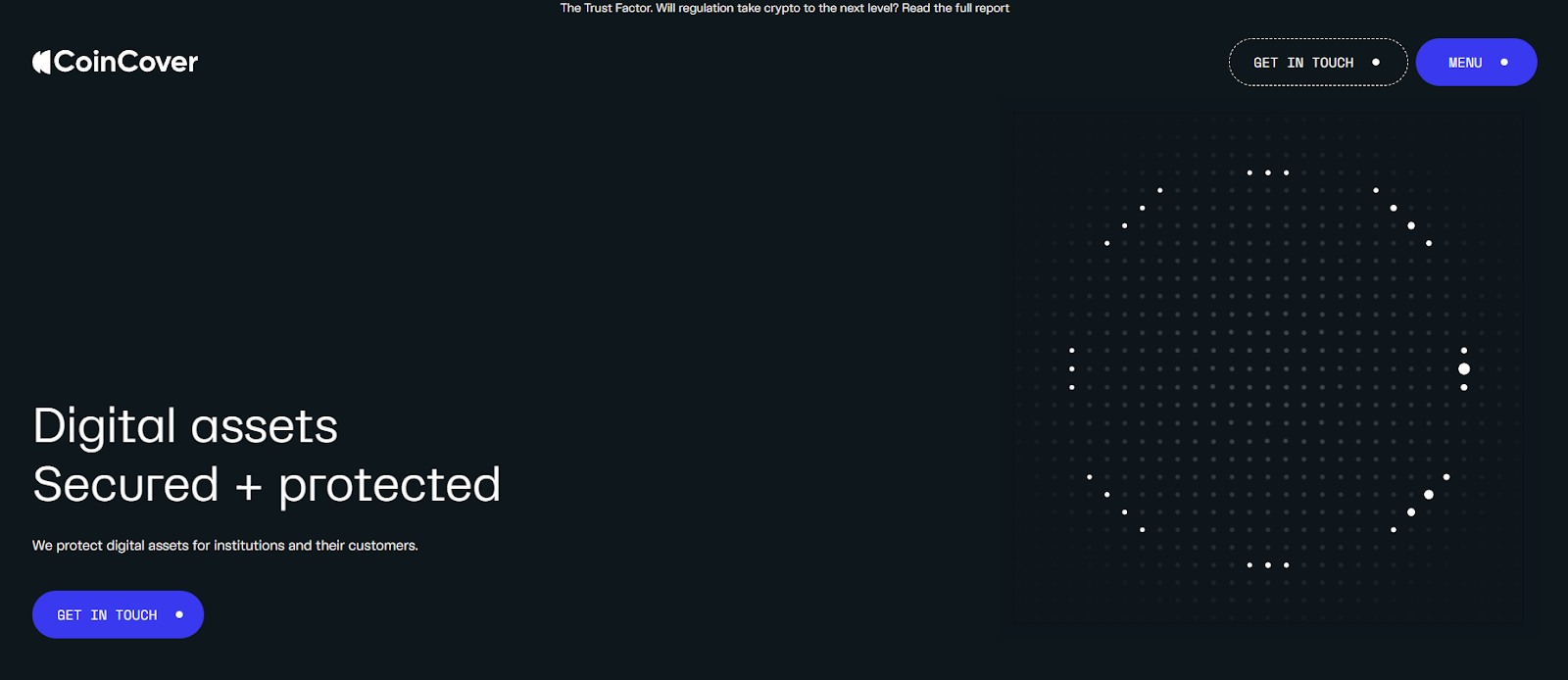
Why Use It: Coincover provides proactive fraud screening, disaster recovery for wallets, and warranty-backed protection that can sit alongside traditional insurance programs—useful for fintechs and custodians embedding safety into UX. Lloyd’s syndicates partnered with Coincover to launch wallet coverage initiatives. Best For: B2B platforms, fintechs, MPC vendors, exchanges seeking embedded protection.
Notable Features:
- Real-time outbound transaction screening.
- Wallet recovery and disaster-recovery tooling.
- Warranty-backed protection that “makes it right” on covered failures. Consider If: You want prevention + recovery layered with traditional insurance.
Alternatives: Evertas, Marsh.
Regions: Global.
3. Marsh (DART) — Best Global Broker for Building Towers
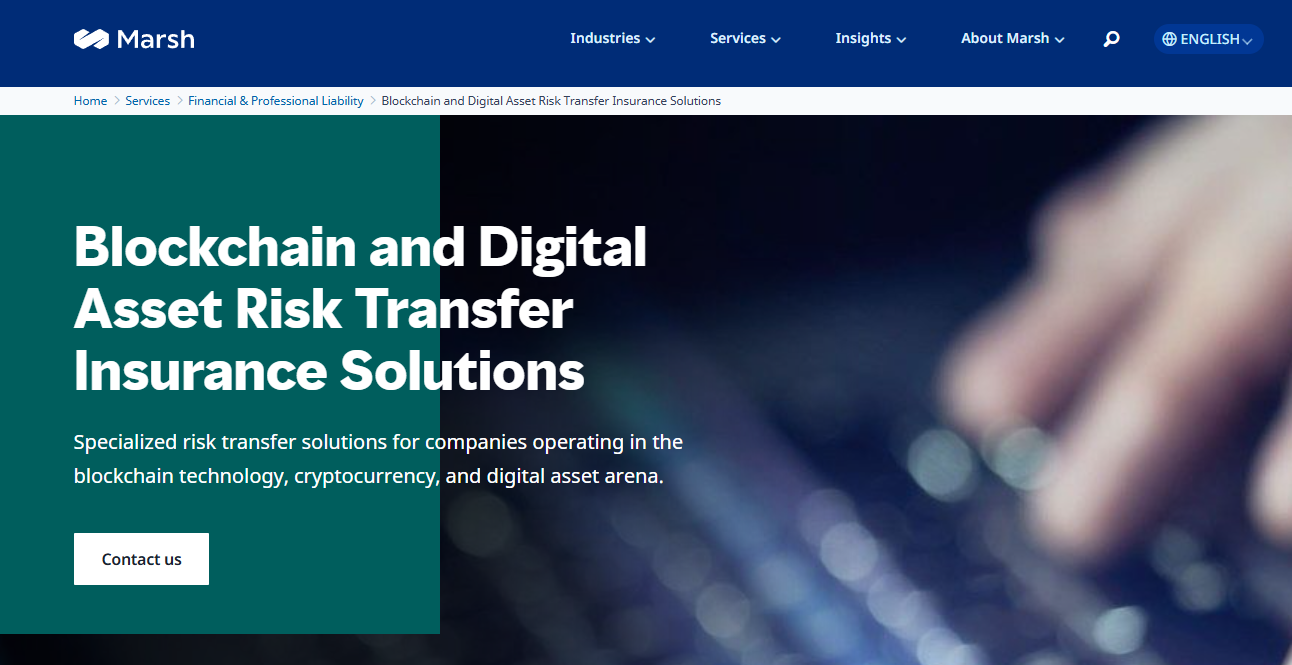
Why Use It: Marsh’s Digital Asset Risk Transfer team is a top broker for structuring capacity across crime/specie/D&O and connecting clients to specialist markets. They also advertise dedicated solutions for theft of digital assets held by institutions. Best For: Large exchanges, custodians, ETF service providers, banks.
Notable Features:
- Specialist DART team and market access.
- Program design across multiple lines (crime/specie/E&O).
- Solutions aimed at institutional theft protection. Consider If: You need a broker to source multi-carrier, multi-region capacity.
Alternatives: Aon, Lloyd’s Market.
Regions: Global.
4. Aon — Best for Custody Assessments + Crime/Specie Placement
Why Use It: Aon’s digital-asset practice brokers crime/specie, D&O, E&O, and cyber, and offers custody assessments and loss-scenario modeling—useful for underwriting readiness and board sign-off. Best For: Banks entering custody, prime brokers, tokenization platforms.
Notable Features:
- Crime & specie for theft of digital assets.
- Custody assessments and PML modeling.
- Cyber/E&O overlays for staking and smart-contract exposure. Consider If: You want pre-underwriting hardening plus market reach.
Alternatives: Marsh, Evertas.
Regions: Global.
5. Munich Re — Best for Reinsurance-Backed Crime & Staking Risk
Why Use It: As a top global reinsurer, Munich Re provides digital-asset crime policies designed for professional custodians and platforms, with coverage spanning external hacks, employee fraud, and certain third-party breaches—often supporting primary carriers. Best For: Carriers building programs; large platforms needing robust backing.
Notable Features:
- Comprehensive crime policy for custodians and trading venues.
- Options for staking and smart-contract risks.
- Capacity and technical guidance at program level. Consider If: You’re assembling a tower requiring reinsurance strength.
Alternatives: Lloyd’s Market, Canopius.
Regions: Global.
6. Lloyd’s Market — Best Marketplace to Source Specialist Syndicates
Why Use It: Lloyd’s is a global specialty market where syndicates (e.g., Atrium) have launched crypto wallet/custody solutions, often in partnership with firms like Coincover. Access via brokers to build bespoke custody crime/specie programs with flexible limits. Best For: Firms needing bespoke wording and multi-syndicate capacity.
Notable Features:
- Marketplace access to expert underwriters.
- Wallet/custody solutions pioneered by syndicates.
- Adjustable limits and layered structures. Consider If: You use a broker (Marsh/Aon) to navigate syndicates.
Alternatives: Munich Re (reinsurance), Canopius.
Regions: Global.
7. Canopius — Best Carrier for Cross-Class Custody (Crime/Specie/Extortion)
Why Use It: Canopius underwrites digital-asset custody coverage and has launched cross-class products (crime/specie/extortion). They’re also active in APAC via Lloyd’s Asia and have public case studies on large Asian capacity deployments. Best For: APAC custodians, global platforms seeking single-carrier leadership.
Notable Features:
- Digital-asset custody product on Lloyd’s Asia.
- Cross-class protection with extortion elements.
- Demonstrated large committed capacity in Hong Kong. Consider If: You want a lead carrier with APAC presence.
Alternatives: Lloyd’s Market, Evertas.
Regions: Global/APAC.
8. Relm Insurance — Best Specialty Carrier for Digital-Asset Businesses
Why Use It: Bermuda-based Relm focuses on emerging industries including digital assets, offering tailored specialty programs and partnering with web3 security firms. Useful for innovative custody models needing bespoke underwriting. Best For: Web3 platforms, custodians with non-standard architectures.
Notable Features:
- Digital-asset specific coverage and insights.
- Partnerships with cyber threat-intel providers.
- Bermuda specialty flexibility for novel risks. Consider If: You need bespoke terms for unique custody stacks.
Alternatives: Evertas, Canopius.
Regions: Global (Bermuda-domiciled).
9. Breach Insurance — Best for Exchange/Platform Embedded Coverage
Why Use It: Breach builds regulated crypto insurance products like Crypto Shield for platforms and investors, and offers institutional “Crypto Shield Pro” and platform-embedded options—useful for exchanges and custodians seeking retail-facing coverage. Best For: Exchanges, retail platforms, SMB crypto companies.
Notable Features:
- Regulated products targeting custody at qualified venues.
- Institutional policy options (Pro).
- Wallet risk assessments to prep for underwriting. Consider If: You want customer-facing protection aligned to your stack.
Alternatives: Coincover, Aon.
Regions: US/Global.
10. Chainproof — Best Add-On for Smart-Contract/Slashing Risks
Why Use It: While not a custody crime policy, Chainproof (incubated by Quantstamp; reinsured backing) offers regulated insurance for smart contracts and slashing—valuable as an adjunct when custodians support staking or programmatic flows tied to custody. Best For: Custodians/exchanges with staking, DeFi integrations, or on-chain workflows.
Notable Features:
- Regulated smart-contract and slashing insurance.
- Backing and provenance via Quantstamp ecosystem.
- Bermuda regulatory progress noted in 2024-25. Consider If: You need to cover the on-chain leg alongside custody.
Alternatives: Munich Re (staking), Marsh.
Regions: Global.
Decision Guide: Best By Use Case
- Regulated U.S. programs & towers: Marsh, Aon, Lloyd’s Market.
- Crypto-native underwriting: Evertas.
- APAC leadership capacity: Canopius (Lloyd’s Asia).
- Embedded protection/wallet recovery: Coincover.
- Reinsurance strength for large towers: Munich Re.
- Retail/platform-facing add-ons: Breach Insurance.
- On-chain/Slashing riders: Chainproof.
- Specialty/innovative risk placements: Relm Insurance.
How to Choose the Right Custody Insurance (Checklist)
- Confirm eligible regions/regulators (US/EU/APAC) and your entity domicile.
- Map storage tiers (cold/warm/hot/MPC) to coverage and sub-limits.
- Validate wordings/exclusions (internal theft, collusion, social engineering, vendor breaches).
- Align limits/deductibles with AUM, TVL, and worst-case loss scenarios.
- Ask for claims playbooks and incident response timelines.
- Review audits & controls (SOC 2, key ceremonies, disaster recovery).
- Query reinsurance backing and panel stability.
- Red flags: vague wordings; “cyber-only” policies for custody crime; no clarity on key compromise.
Use Token Metrics With Any Custody Insurance Provider
AI Ratings to vet venues and counterparties you work with.
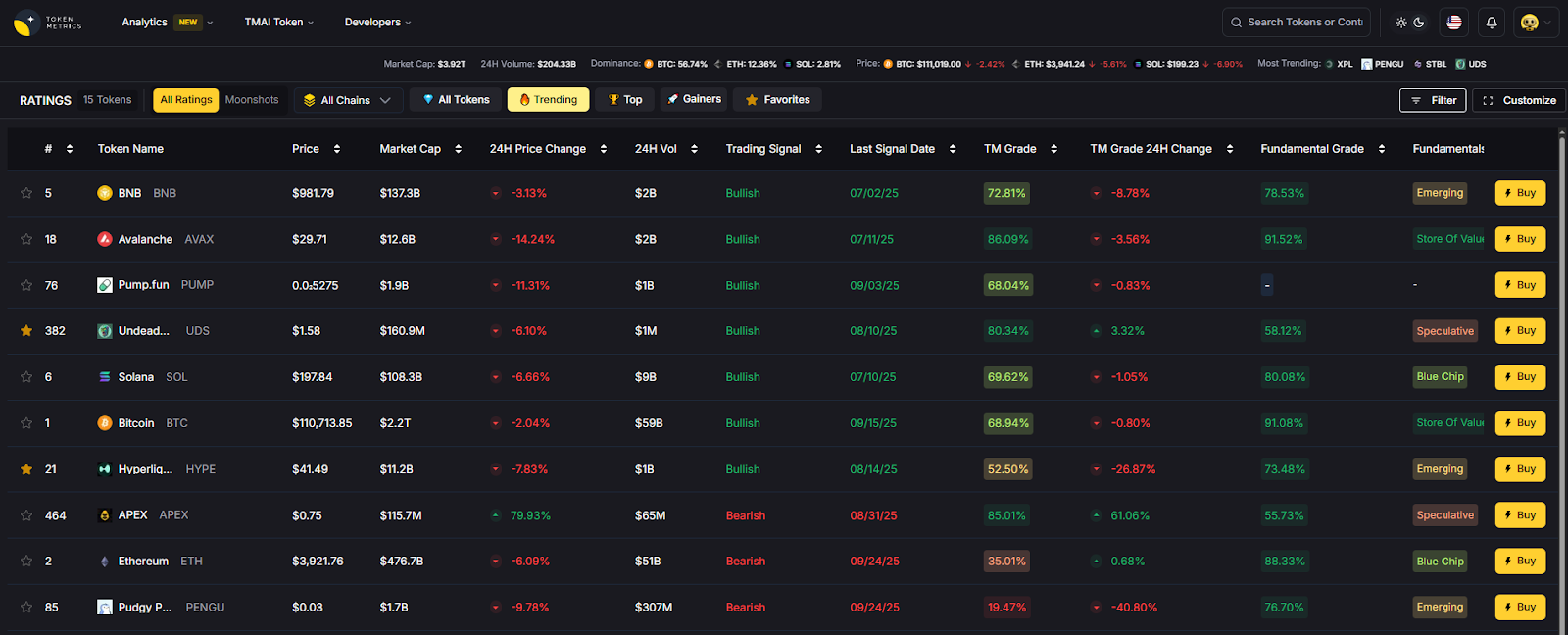
Narrative Detection to identify risk-on/off regimes impacting exposure.
Portfolio Optimization to size custody-related strategies.
Alerts/Signals to monitor market stress that could correlate with loss events.
Workflow: Research → Select provider via broker → Bind coverage → Operate and monitor with Token Metrics alerts.
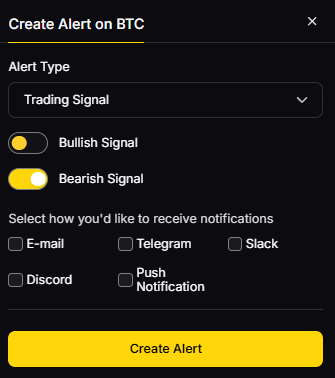
Primary CTA: Start free trial

Security & Compliance Tips
- Enforce MPC/hardware-isolated keys and dual-control operations.
- Use 2FA, withdrawal whitelists, and policy controls across org accounts.
- Keep KYC/AML and sanctions screening current for counterparties.
- Practice RFQ segregation and least-privilege for ops staff.
- Run tabletop exercises for incident/claims readiness.
This article is for research/education, not financial advice.
Beginner Mistakes to Avoid
- Assuming cyber insurance = custody crime coverage.
- Buying limits that don’t match hot-wallet exposure.
- Skipping vendor-risk riders for sub-custodians and wallet providers.
- Not documenting key ceremonies and access policies.
- Waiting until after an incident to engage a broker/insurer.
FAQs
What does crypto custody insurance cover?
Typically theft, key compromise, insider fraud, and sometimes extortion or vendor breaches under defined conditions. Coverage varies widely by wording; verify hot/warm/cold definitions and exclusions.
Do I need both crime and specie?
Crime commonly addresses employee dishonesty and external theft; specie focuses on physical loss/damage to assets in secure storage. Many carriers blend elements for digital assets—ask how your program handles each.
Can staking be insured?
Yes—some reinsurers/insurers offer staking/slashing riders or separate policies; smart-contract risk often requires additional cover like Chainproof.
How much capacity is available?
Depends on controls and market appetite. Lloyd’s syndicates and reinsurers like Munich Re can support sizable towers when risk controls are strong.
How do I reduce premiums?
Improve key-management controls, segregate duties, minimize hot exposure, complete independent audits, and adopt continuous monitoring/fraud screening (e.g., Coincover-style prevention).
Are exchanges’ “insured” claims enough?
Not always—check if coverage is platform-wide, per-customer, warranty-backed, or contingent. Ask for wordings, limits, and who the named insureds are.
Conclusion + Related Reads
If you need a crypto-first insurer, start with Evertas. Building a global tower? Engage Marsh or Aon across the Lloyd’s Market and reinsurers like Munich Re. For APAC-localized capacity, consider Canopius; for embedded protection, weigh Coincover or Breach. Add Chainproof if staking/DeFi exposure touches custody workflows.
Related Reads:
- Best Cryptocurrency Exchanges 2025
- Top Derivatives Platforms 2025
- Top Institutional Custody Providers 2025


Get Your Brand in Front of 150,000+ Crypto Investors!




 Create Your Free Account
Create Your Free Account9450 SW Gemini Dr
PMB 59348
Beaverton, Oregon 97008-7105 US
.svg)
No Credit Card Required


Online Payment


SSL Encrypted
.png)
Products
Subscribe to Newsletter
Token Metrics Media LLC is a regular publication of information, analysis, and commentary focused especially on blockchain technology and business, cryptocurrency, blockchain-based tokens, market trends, and trading strategies.
Token Metrics Media LLC does not provide individually tailored investment advice and does not take a subscriber’s or anyone’s personal circumstances into consideration when discussing investments; nor is Token Metrics Advisers LLC registered as an investment adviser or broker-dealer in any jurisdiction.
Information contained herein is not an offer or solicitation to buy, hold, or sell any security. The Token Metrics team has advised and invested in many blockchain companies. A complete list of their advisory roles and current holdings can be viewed here: https://tokenmetrics.com/disclosures.html/
Token Metrics Media LLC relies on information from various sources believed to be reliable, including clients and third parties, but cannot guarantee the accuracy and completeness of that information. Additionally, Token Metrics Media LLC does not provide tax advice, and investors are encouraged to consult with their personal tax advisors.
All investing involves risk, including the possible loss of money you invest, and past performance does not guarantee future performance. Ratings and price predictions are provided for informational and illustrative purposes, and may not reflect actual future performance.



%201.svg)

